Monday, July 17
Creative Hub Kotor, 9 p.m.
#SYNERGY
PROGRAM
Mira Milosavljević (1993)
Conversations Within
Performed by: Andrijana Durmišević, violin, Milena Petković, violin, Magdalena Burhan, viola, Cristina Basili, cello
This composition explores the freedom we find within ourselves when we are faced with the constraints of the outer world, with dissonant harmonies that convey a sense of struggle and resistance. The interwoven voices of the instruments represent the interplay between our inner and outer selves, as we strive to break free from external limitations and carve out our own paths towards self-realization.
Mira Milosavljević
Predrag Radisavljević (1993)
Kulshedra
Performed by: Marija Ticl, voice, Martina Jembrišak, accordion
’Kulshedra’ for female voice, accordion, and live electronics is inspired by Albanian mythology. Extended instrument techniques are represented in the composition. The sound is live-processed so that the acoustic sound of the accordion and the voice are not heard in the audience. Note: The live performance is loud. Please do not stand close to the speakers.
Predrag Radisavljević
Kris Sopiqoti (1994)
Noise
Performed by: Andrijana Durmišević, violin, Dušan Obrenović, violin, Magdalena Burhan, viola, Arian Zherka, cello
‘Noise’ is the title that I chose for my new Composition! During the summer of 2022, when I was in residence in Belgrade (Serbia). This composition is in 2 movements and I was inspired by the sound of the rivers Danube and Sava and the diversity of the city sounds that I found in Belgrade. The first movement is about the sound of the river - but not the sound of the surface or the river flowing, but rather as if you are immersed in the river. My quartet starts with note D(Re) as a reference to the first letter of Danube. The second movement represents the sounds of the city, with more extended techniques utilized and different soundscapes to convey the diversity of the city.
Kris Sopiqoti
Tomislav Oliver (1987)
Korbe
Performed by: Teodora Uskoković, cello
The word ‘Korbe’ in the language of old Boka and Mediterranean people referred to the wooden ship ribs, a part of the boat that was connected to the keel and served as the frame of the ship. Its very foundation enabled it to perform its primary function – to stay afloat on the water. Their harmony was a metaphor for Harmony (Ἁρμονία), the goddess of unity, after whom the concept of harmony in arts, architecture, and harmony among people was named in ancient times. These ship ribs, vital to every seafarer, became a metaphor for the life harmony of the Mediterranean people and the main inspiration for the composition created during my residency in Kotor. The theme I intended to explore during the residency was the multi-confessionalism of this old city, a city that revealed its layers, rich culture infused with various influences, and an ideal of spiritual freedom that was possible only through harmony among these differences and the connection of its people and believers. As long as it preserves its spiritual freedom and harmony, Kotor will continue to ‘sail’.
Tomislav Oliver
Jetmir Zaganjori (1994)
Anosmia
Performed by: Tereza Horáková, violin, Leufat Buçuku, violin, Marija Božić, viola, Teodora Uskoković, cello
The composition on COVID-19 has been created according to the specific requests of the partner, the Ljubljana Festival. One common symptom of COVID-19, which can persist as a long COVID repercussion, is Anosmia. Anosmia, also known as smell blindness, is the loss of the ability to detect one or more smells. Anosmia may be temporary or permanent. The work is built in the form of three parts with a contrasting middle. The first part of the work represents a body or a healthy subject (a person in good health) and then the middle of the work suggests a body which is infected by the COVID-19 virus. After being infected, the organism undergoes changes that lead to difficulty in breathing and extreme fatigue. This is reflected in the way of writing and creating works, which all become transformed. This creates the contrast with the first part of the work. In the third part, there is a return to the healthy state of man, which is reflected in the work with a return to the first theme, but still there might be small issues or changes occurring (long COVID). The whole work has been creating employing autochthonous Albanian modes, whose simultaneous combinations produce a multimodal sound.
Jetmir Zaganjori
Helena Skljarov (1993)
Ljubljana
Performed by: Alenka Bogataj, flute, Cristina Basili, cello, Martina Jembrišak, accordion
The composition ‘Ljubljana’ combines music and visual art, and is based on a walk through Ljubljana, documented during my summer residency in 2022. The Electronics were made using Max MSPsoftwere and the algorithms are sensitive to visual cues (color and movement) and react to the video itself – resulting in a specific soundscape. Three instruments accompany the painting (as well as electronics) of the video and in this way represent how the views of Ljubljana and its colors could sound.
Helena Skljarov
Partners:
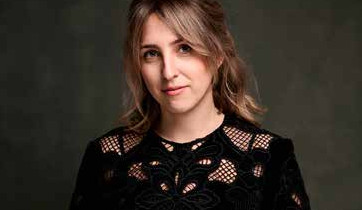
Mira Milosavljević studied Composition at the Faculty of Music in Belgrade. Her compositions have been performed at the International Review of Composers in Belgrade, the KoMA festival, the Gerasimov Institute of Cinematography Festival in Moscow, the TACT festival, as well as at festivals in Italy, Slovenia, Croatia and Belgium, and broadcasted in Great Britain. She has written music for TV dramas and plays. During 2016/2017, Mira Milosavljević won the Dositeja scholarship of the Foundation for Young Talents of the Republic of Serbia, as well as the Stevan Hristić Award. She also won a scholarship to participate in the Next Generation contemporary music program of the Donaueschinger Musiktage festival and a British Music Society grant to attend the Gaudeamus Muziekweek in Utrecht, where she participated in the Open Music and Contemporary Compositional Techniques workshop under the mentorship of Rozalie Hirst and Music Theater with Thanasis Deligiannis. Her composition Knotenpunkt (2016) was selected to represent Serbia at the 66th International Rostrum of Composers. In 2020, Mira Milosavljević was the winner of the Radio Belgrade competition for new original music for the show Dobro jutro, deco.
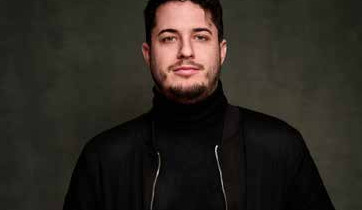
Predrag Radisavljević completed his bachelor and master studies in Accordion at the Faculty of Arts in Niš, under Professor Miljan Bjeletić. He continued his education at the Faculty of Music – he obtained his bachelor’s degree in Composition under Professor Branka Popović. In 2020, Predrag Radisavljević enrolled in master studies in Music Production, and in 2021 he became a PhD student in Composition. As a composer, he has collaborated with the Schlesinger Chamber Orchestra, the Niš Symphony Orchestra, the Akkordeonorchester Unterpfaffenhofen (Germany), the Montenegrini Chamber Orchestra (Montenegro), the Academic Accordion Orchestra Kragujevac, Vlatko Stefanovski, the Art Family Chamber Ensemble, and has participated in numerous theater and film projects. Predrag Radisavljević is the author of the composition Oplenac for voice, accordion and cello to the verses of Matija Bećković, which was performed at the Sava Center in Belgrade and the Doha Opera House (Qatar), as well as the composition Dolls of Blood for accordion, which was premiered in Spain and published by Publishing Center of the Faculty of Arts in Niš. His works have been performed in Serbia, Spain, Canada, USA, Qatar, Slovakia, Austria, Croatia, and Montenegro. Since 2020, Predrag Radisavljević has been working as an assistant at the Faculty of Music in Belgrade.
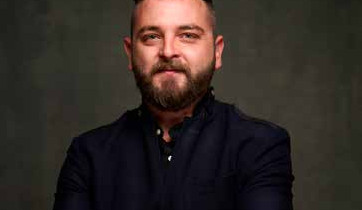
Kris Sopiqoti graduated in Composition at the University of the Arts under Professor Aleksander Peci. During 2016, he was on a six-month student exchange program at the Giuseppe Tartini Conservatory in Trieste, within the Erasmus+project, under Professor Fabio Nieder. Kris Sopiqoti has participated in numerous masterclasses held by eminent composers such as Balázs Horváth, Ivo Medak, Stefano Bellon, Alessandro Olla, Daniele Ledda, Ada Gentile, Thomas Simaku, and Johannes Kretz. His compositions have been performed at student concerts – Trio for piano, violin and cello, 5 Tables for piano, and String Quartet at the Pianodrome (Edinburgh); Variations for piano, violin and cello, Piano Sonata, String Quartet and Paraphrase from Piano Concerto No. 1 at the Concert of New Albanian Composers; La Creazione Laica String Quartet No. 1 in Bogotá and AlbPhonia 1 in Sydney, while in Venice his works have been performed by the Enydra Ensemble. Kris Sopiqoti works as a composer on the Musicians Without Borders project of the Ministry of Culture and the Center for Sustainable Development in Albania. In 2019, composer Alan Holley and the Sirius Chamber Ensemble selected him to write new works and premiere them in Sydney.
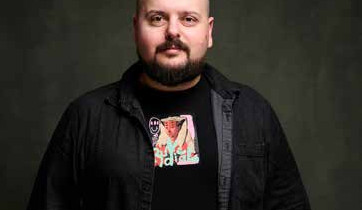
Tomislav Oliver graduated in Musicology and Composition from the Academy of Music in Zagreb, under Professor Marko Ruždjak. He completed postgraduate studies at the Mozarteum University in Salzburg under Professor Stephan Winkler, the Catalonia College of Music (ESMUC) in Barcelona under Professor Mauricio Sotelo and the University of Arts in Graz under Professor Marko Ciciliani and Professor Franck Bedrossian. Tomislav Oliver has participated in masterclasses of renowned composers such as Nigel Osborne, Michael Wendeberg, Klaus Lang, Rebecca Saunders, Elena Mendoza, João Pedro Oliveira, among others.He is the author of chamber and symphonic music, music for experimental films, ballet, contemporary dance and electronics. Tomislav Oliver has collaborated with renowned artists and ensembles, including Riot, Kebyart, Cantus, Clara Haskil Trio, Zagreb Philharmonic, and others. He collaborates with artists from various artistic fields, and intensively with his friends from the B.A.K.A. artistic collective, which emphasizes experimentation with electronic music, sound design and audio-visual projects. Tomislav Oliver is the artistic director of the Music Biennale in Zagreb and assistant professor at the Department of Composition and Music Theory at the Academy of Music in Zagreb.
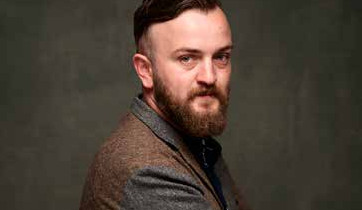
Jetmir Zaganjori completed his bachelor’s and master’s studies in Composition at the University of Arts in Tirana under Professor Vasil Tole. He won a special prize for a young composer at the competition of the Ministry of Culture in Tirana. In his compositions, Jetmir Zaganjori uses a specific musical language that contains the complexity of different modal scales through which he preserves the authenticity of Albanian traditional music, in combination with classical harmony. Old traditional songs from his hometown of Shkodër have become the genesis of his music, specifically Theme with Variations for piano and the choral composition Tu qajë Nëna me radhe. Jetmir Zaganjori is the author of a Suite for orchestra based on three different local harmonies. The ballet Balkan Express, whose libretto was based on the book of the same title by Stefan Çapaliku, has a recognizable harmonic and rhythmic texture and uses folklore songs in it. In 2019, he participated at the Tirana Academy of Composers and the Summer School in Ireland, where he presented the Muji, Halili and Zana trio for piano, clarinet and sopran. In 2020, Jetmir Zaganjori was selected to participate in the ManiFeste Festival (Ircam, Paris), but the competition was postponed due to the pandemic.

Helena Skljarov graduated in Musicology from the Music Academy of the University of Zagreb, and then in Composition under the mentorship of Professor Berislav Šipus. During 2019/2020, she studied at the National Conservatory of Music and Dance (CNSMD) in Lyon under Professor Martin Matalon. Helena Skljarov has participated in numerous masterclasses working with composers such as Irvine Arditti, Tristan Murial, Pascal Rophé, Elena Mendoza, Alexander Schubert, among others. She won the Rector’s Award of the University of Zagreb for the composition Pulsar. Helena Skljarov was the resident composer of the Aix-en- Provence Festival. Her opus includes more than forty compositions for various solo instruments, larger or smaller chamber ensembles, one symphony and two operas. Helena Skljarov is currently interested in musical theater and interdisciplinary art. In 2020, she held the first exhibition of her SoundArt project in Zagreb, in which she explored the relationship between image and sound through music software. Her string quartet Silence was selected for the ISCM World New Music Days Festival in Shanghai and Nanjing (China). Since 2023, Helena Skljarov has been working as an assistant at the Department of Composition at the Music Academy in Zagreb.

